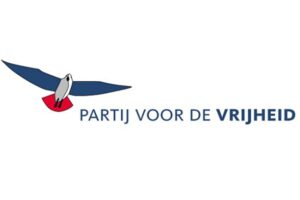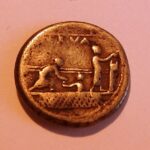PVV Blog 7 ~ Remembrance Day 2024
No Comments yet 05-03-2024 ~The Netherlands commemorates the victims of the Second World War annually on May 4th. This remembrance takes place through a ceremony held at the central square ‘de Dam’ in Amsterdam.
05-03-2024 ~The Netherlands commemorates the victims of the Second World War annually on May 4th. This remembrance takes place through a ceremony held at the central square ‘de Dam’ in Amsterdam.
During the yearly Remembrance Day event, wreaths are laid at the monument by the chairpersons of the Senate and House of Representatives. This year, Martin Bosma, a member of the Party for Freedom, will lay the wreath on behalf of the House of Representatives. In 2023, Bosma was democratically elected as the chairman of the House of Representatives, representing the ideological stance of the Party for Freedom. Throughout this series, I heavily draw upon his book ‘De schijn-élite van de valse munters. Drees, extreem rechts, de sixties, nuttige idioten, Groep Wilders en ik’ published in 2010. Below, I provide an analysis of several quotes from Bosma’s book, followed by commentary on these quotes.
Quotes about Christianity
‘There are few things the Dutch can be happier with than the Christian background of their country. Almost all of our crucial achievements have a relationship with Christianity. Democracy, separation of church and state, tolerance, but also values such as diligence and efficiency’ (p. 94).
‘Monoculturalism, supplemented with Christian-Western values such as diligence, discipline, honesty and efficiency, created an unparalleled high point in human history’ (p. 188).
Quotes about Islam
‘Islam brings us mutual distrust, certainly not multicultural enrichment’ (p. 321).
‘Maybe individual Muslims adapt here and there, but Islam cannot do that’ (p. 304).
‘The dominant factor that determines whether Sharia is introduced in the Netherlands is not so much the ummah (the international Islamic community) but it is the powerful left-wing church with its crucial positions of power’ (p. 148).
‘The limits of what you say in the Netherlands are no longer determined by democratically established laws, but by the assessment of whether by saying it you run the risk of being ritually slaughtered on a public road’ (p. 130).
‘In the long term, there is a huge possibility of the introduction of Sharia in (parts of) the Netherlands. In the medium term, the subject of Islamization will have a paralyzing effect on the political system’ (p. 119)
Quotes about left-wing parties and multiculturalism
‘As a result of the Sixties revolution, multiculturalism has become our national state ideology’ (p. 320).
‘The multicultural society is the result of an erosion of democracy’ (p. 119).
‘Somewhere an immigration flow reaches a tipping point. Then it is not the immigrants who are adapted to the host country, but the host country is adapted to the immigrant (p. 141).
‘The war is a war about who is in charge on the left’ (p. 251), (i.e. Hitler’s National Socialists or Stalin’s Communists, JJdR).
‘Almost all multicultural states have disintegrated after a lot of misery’ (p. 188).
Bosma also quotes Adolf Hitler: ‘How can you be a socialist without being an anti-Semite?’ (p. 256).
‘Genocide as a policy instrument already appears at the origins of socialism’ (p. 258).
Quotes about Jews and Israel
‘Israel has become the symbol of our freedom and the desire to continue that freedom.’
‘The flag of Israel is therefore the flag of all free people.’
‘The country is a barometer of our future’ (p.275).
‘If the armies of Hamas and Hezbollah march through the streets of Tel Aviv, Amsterdam and Paris will be hopelessly lost’ (p. 275).
Other quotes
“Democracies rarely go to war, and certainly not with other democracies” (p. 188).
‘A hundred years from now, people will remember Geert Wilders (leader Party for Freedom) as someone who had the moral clarity to tell the truth that needed to be told’
Remembrance Day 2024
As a representative of the Dutch state, Martin Bosma stands on May 4th at Dam Square in Amsterdam, espousing the views expressed above. He contends that Christianity has played a significant role in shaping our democratic accomplishments.
He advocates for a monocultural society as a path to salvation, asserting that Islam only leads to suffering and distrust. He attributes the blame for the Second World War to leftist ideologies, associating them with anti-Semitism and genocide, while regarding Israel as a bastion of freedom.
However, Bosma’s perspective overlooks the contributions of the French Revolution to our democratic ideals, which emerged independently of Christianity. It also disregards the existence of successful multicultural societies that remain resilient.
Additionally, he fails to recognize that diversity can foster empathy and mutual support. Furthermore, Bosma neglects to acknowledge the persecution endured by social democrats in Nazi Germany.
Looking at the present moment, it’s evident that some of Bosma’s quotes have become outdated. The surge of anti-Islam rhetoric in the Netherlands and Western Europe, largely fueled by populist parties like the Party for Freedom, has effectively discredited the notion of ‘multiculturalism’ as a state-endorsed ideology, assuming it ever held such a status. Additionally, the once formidable left-wing influence has significantly waned.
In the context of international affairs, accusations abound regarding the current Israeli government’s alleged genocidal actions in Gaza. Prior to October 7th, attempts to stifle the Israeli Supreme Court added to the mounting concerns. The perception of the Israeli flag as a symbol of freedom has undergone a transformation, evident in the stark divide between perspectives within Israel itself and those in Gaza and the West Bank.
Furthermore, it’s worth pondering the assertion that democracies seldom engage in warfare. The historical trajectory of post-World War II America, marked by military interventions in Korea, Vietnam, Iraq, and Afghanistan, challenges this notion.
Reflecting on the relevance of Martin Bosma’s statements from a book published thirteen years ago, one might question the validity of using them as a cudgel.
However, the absence of any retractions from Bosma over the intervening years raises concerns. Coupled with the recent impassioned rhetoric of his party leader, Geert Wilders, at the Hungarian CPAC event, it seems prudent to remind the public that the individual solemnly laying wreaths at Dam Square on May 4th represents an ideology with potential implications for inciting conflict.
You May Also Like
Comments
Leave a Reply







